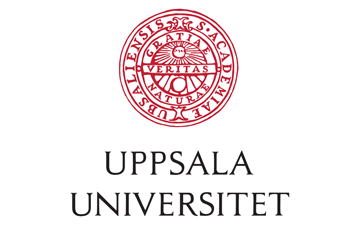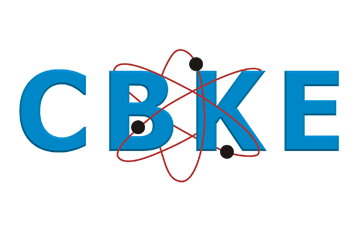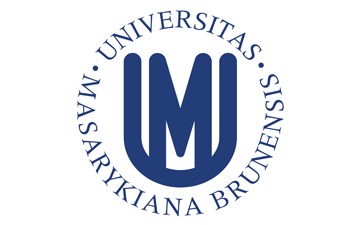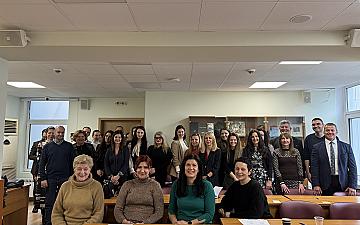An increasing number of commercial transactions on national and international level are carried out by means of electronic communications and with the absence of any tangible tracks. Questions such as “What is the legal value of electronic documents?”, “Are electronic signatures admissible in court?”, and “Are the legal requirements for ‘in writing’ and ‘signed’ complied with, when electronic documents and electronic signatures have been used?” are evidential for the urgent need for legal certainty.
As a result, the Law and Internet Foundation (LIF) experts provided the basis for the legal regulation on electronic documents and electronic signatures in Bulgaria. The organisation participated in the drafting of the E-document and E-signature Act (2001) and the secondary legislation on its implementation, as well as its amendments in the following years.
Additionally, in 2004, the experts at LIF developed a commentary on the Act (“E-document and E-signature. Legal Regime” - 2004) that is still applicable because of its extensive analysis of the legislation. More so, in 2009 the Foundation participated in drafting a wide range of acts and secondary legislation with regard to the implementation of the e-documents and e-signatures in the judicial system.
Since 2004, the Law and Internet Foundation experts have taken part in trainings and consultations related to the provision of electronic administrative services to citizens including re-engineering of working processes, development of internal rules for document flow of electronic and paper documents, and introduction of electronic and compound administrative services. As a result, more than 1200 professionals from the state administration and judicial system have been trained on issues related to usage of e-documents and e-signatures and regulation of their activities, while facing the new information reality.
In 2006, by assignment of the Ministry of State Administration and Administrative Reform, the Foundation developed a Roadmap for e-Government Development in Bulgaria 2006 – 2009 and a Legal Framework of Electronic Governance in Bulgaria. LIF experts have managed the work groups, drafting the Electronic Governance Act and the secondary legislation on its implementation (2006 – 2007) and also participated in the development of the legislation after the Act came into force.
In 2008, LIF prepared a complete analysis of the existing national e-Governance legislation regarding the implementation of electronic government, including normative acts; an analysis supplemented by a comparison of the existing practices in the implementation of e-Governance in the EU Member States; and proposals for further legislation development and improvements of the existing practices for implementation of the Strategy for E-government. During the same year LIF experts elaborated a full analysis and provided consultations to business associations in Bosnia and Herzegovina within the World Bank project on the development of ICT in the country, as the final report included comprehensive recommendations, serving as a basis for establishing a national ICT strategy.
Again in 2008, LIF participated in a project for building a network of training centers for local administration employees to the implementation of the Aquis in the area of information society. Our experts prepared educational materials, trained a team of lecturers and conducted training courses throughout the country. Furthermore, in November 2008, the Foundation organized a national conference "The Road to e-Municipality – the Digital City" under the aegis of Sofia Municipality and with the support of the National association of municipalities in the Republic of Bulgaria. Experts and guests from the leading EU Member States in the field attended the conference. They discussed the best solutions and practices for a reasonable and adequate implementation of new technologies in the service of citizens.
In 2010, LIF finished the preparation of internal rules for document flow of electronic and paper documents for 12 regional and 74 local administrations that include the following: analysis for establishing the basic institutional nomenclatures; development of standard rules for internal administrative activities and internal rules of 8 administrations; and preparation of instructions for their adaptation to the needs of the specific administration.
Over the years, the Foundation experts have also consulted the European Commission on the legal and market issues on e-signatures, and have participated in multiple international projects, related to their regulation on supranational level. Also, LIF has continued to support regional and local authorities in optimizing their internal processes and integrating electronic administrative services, strengthening its role amongst organizations dealing with the legal aspects of e-governance.
Resources
- Dimitrov, G., Dimitrova, Sv., The EU Regulation on electronic identification and certification services: paving the way forward towards more secure internet transactions
- Ordinance on the Certificates for Electronic Signatures in the Public Administration, SG, issue 48 of 23 May 2008
- Electronic Documents and Electronic Signatures Act , SG, issue 100 of 21 December 2010
Projects
- Feasibility study for identification of technical interoperability in Montenegro
- Conducting a throughout assessment of the level of approximation of the national legislations of the Western Balkans region with EU eIDAS regulation and interoperability readiness of the region
- Drafting Legislative Framework for Implementation of Electronic Document and Electronic Signature in the Judiciary
- Training officials from the Registry Agency on the Application and Implementation of the Commercial Register Act
- Bringing the e-Government Services Closer to the Citizens















